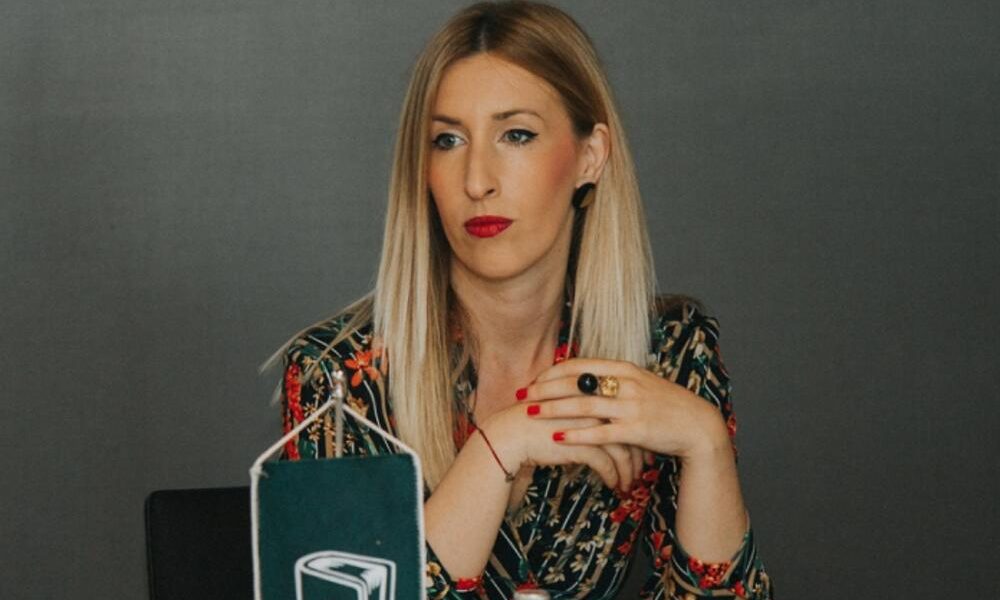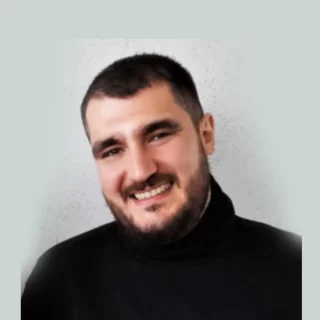No days of remembrance, no memorials, no established criminal responsibility of the perpetrators, no responsibility of judicial authorities for failures in prosecution, and no justice for the victims. It is a story about Bukovica and injustice.
Jakub Durgut, a wonderful soul and witness to the Bukovica crime, is no more. In addition to his memory, we are left with his book “Bukovica 1992 – 1995. Ethnic Cleansing, Crimes and Violence”. However, none of the facts from that book, as well as from numerous testimonies before the court, are represented to this day in textbooks in Montenegro, museum collections or any of the professional bulletins.
Official sources indicate that Bukovica is just a rural area, about 60 km away from Pljevlja. Everything that happened there in the 90s was deeply buried by the ruling structures in Montenegro through the project of oblivion. Newer generations do not know that until the beginning of the 90s this region was predominantly inhabited by Bosniaks-Muslims, i.e. the population of the Islamic religion, which were over three hundred. The Government of Montenegro invested almost five million euros in order to build 110 houses and around 60 auxiliary buildings there. That opaque undertaking of alleged efforts towards the economic revitalization of that region, apart from being done sloppily, is also an attempt to compensate for a brutal crime. Instead of livestock roads, bales of hay, old varieties of plums and the buzz of life, the neighborhoods were populated with multi-storey buildings, a new reality was artificially created, without the locals who make up the heart of this place.
For those with a little more awareness of justice and the culture of remembrance, Bukovica is known as the only territory in Montenegro where ethnic cleansing was carried out in the 90s. Namely, according to available information, at the beginning of 1992, 24 villages were displaced. From 1992 to 1995, six civilians were killed. Eleven people were abducted and taken to the prison in Čajniče, and two committed suicide as a result of torture, while an additional 70 civilians were subjected to physical torture, including extreme forms of humiliation and rape. At least eight houses and the village mosque were set on fire, property was looted, other houses were destroyed, etc. About 125 families with 330 members were displaced. Only the death of a local road maintenance worker, Džafer Đog, was prosecuted, but it was qualified as murder, not a war crime. Majoš Vrećo was legally convicted, but was later amnestied by the then president Djukanović, while accomplice Dragomir Krvavac was acquitted due to insanity.
During the armed conflict in Bosnia and Herzegovina, a large number of reservists of the Yugoslav Army and the police force of the Republic of Montenegro were concentrated in the territory of Bukovica, headed by Veselin Veljović, whose career took off, him ultimately becoming the Director of the Police Directorate, and today he is an advisor to the President. Apart from them, there was also a significant number of members of paramilitary formations. The official reason for the grouping of these forces in that area was to guard the border in order to prevent the incursion of Muslim paramilitary units from Bosnia and Herzegovina and the search for hidden weapons. Under the guise of the alleged defense of the citizens of the area, crimes were committed. Unfortunately, even today, they are only mentioned by the rare non-governmental and international organizations fighting against oblivion and further victimization of those who suffered excessively during those war years. The Montenegrin Prosecutor’s Office put the case at the bottom of the drawer a long time ago, in the hope that everything will be forgotten, with empty promises to the European Commission that the case will be reviewed. In the meantime, the painful reminder and irony of distorting literally everything in this case is the fact that the one who should have been included in a fair trial before a court of law, Veselin Veljović, today presents himself as one of the defenders of state sovereignty.
As a reminder, the sham trial began in 2010 in Montenegro, after more than two years of prosecutorial investigation, eighteen years since the crime was committed. The final result of the three-year trial is that there was no crime. It has never been determined in a single valid trial whether there was a deliberate wrong qualification, i.e. wrong application of the law, or whether the Montenegrin judiciary is so incompetent to prosecute war crimes, because the matter of the responsibility of the holders of judicial functions who participated in this case has never been addressed. The state of Montenegro canceled out its responsibility, paying millions in damages and building new houses in Bukovica, which no one has returned to, except on the eve of certain elections. With that perverse reciprocity, but also by rewarding those who should have been held criminally accountable, the authorities showed how they see “justice being served” in Bukovica.
Each war crime case on the territory of Montenegro has its own peculiarities. However, only the residents of Bukovica felt the complete horror of the civil war and all the atrocities that accompany it. Although war crimes and crimes against humanity have not yet been legally proven, it is obvious that the military and police forces, at the very least, did not do their job, that is, they did not protect the citizens of Montenegro in this area. The Government of Montenegro practically recognized this in 2008, when it reached a court settlement with the families of Bosniak-Muslims who were expelled and killed in 1992, through indemnity payments. The money was awarded to 247 people who are considered victims or next of kin of victims of this crime.
Although the war was not fought on the territory Montenegro, it is indisputable that war events from the neighborhood had spilled over to Montenegrin soil. It is undeniable that the official policy in the first half of the 90s was only a variation of the so-called “Belgrade” project, as well as that many citizens of Montenegro, as well as members of the then government security forces, were direct participants in the wars, including those who committed war crimes. The “Bukovica Case” is an example of the unwillingness of official Montenegro to engage in a fundamental confrontation with the past, as well as of the absence of efforts by the competent judicial authorities in the fight against impunity for war crimes in accordance with international standards.
Oblivion must not be the policy of societies that strive to prevent future conflicts. That is why it is important to communicate about Bukovica, and all other cases, until justice is served before the courts. And in order for the region to embark on the necessary integrations, not only European ones, but sustainable regional schemes, there must be an understanding of common civil history, based on facts that are verifiable and that will be resistant to all political and propagandist interpretations.
Tamara Milaš is the coordinator of the Human Rights program at the Center for Civic Education (CGO) in Montenegro, with a focus on judicial reform and confronting the past. She is preparing her master’s thesis at the International Law Department of the Faculty of Law of the University of Montenegro, where she previously specialized and graduated from the civil law study program. She pursued her professional development through the programs of the non-governmental sector in the areas of human rights, peace, democracy, critical thinking, and project management. Within the negotiation structure of Montenegro with the EU, she was a member of the Working Group for Chapter 23 – Judiciary and fundamental rights. She is a lecturer at the School of Human Rights and the School of Democracy, organized by the CGE, on the topics of transitional justice and protection of human rights, and is a spokesperson for the Coalition for RECOM in Montenegro. She is the author, co-author or editor of numerous publications in the field of human rights and education.
Translated by Bogdan Petrović




